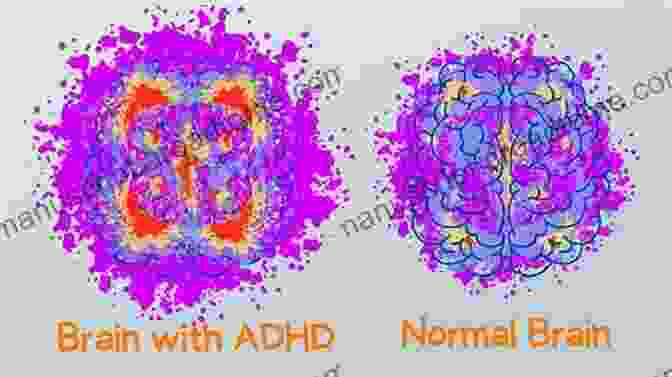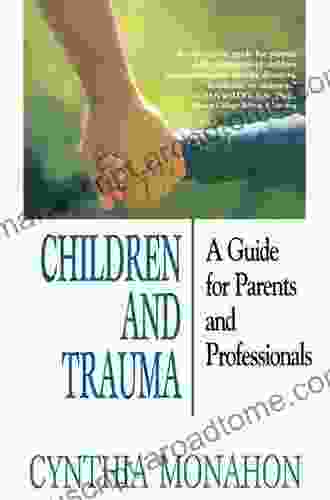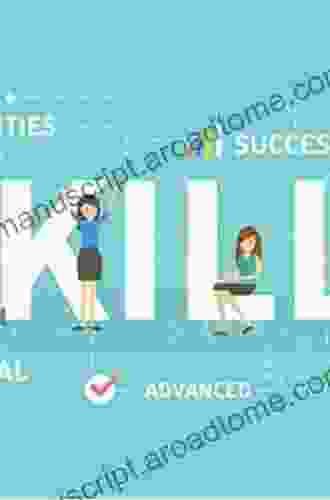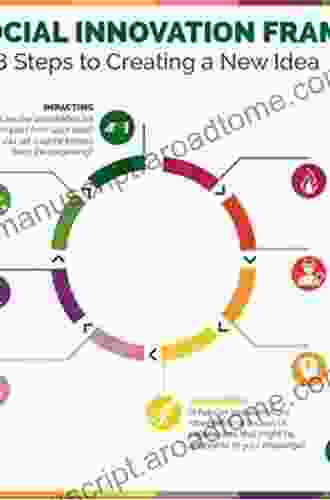The Science of ADHD: A Comprehensive Guide to Understanding, Managing, and Thriving with Attention Deficit Hyperactivity Disorder


Attention Deficit Hyperactivity DisFree Download (ADHD) is a neurodevelopmental condition characterized by persistent patterns of inattention, hyperactivity, and impulsivity. Affecting millions worldwide, ADHD can significantly impact daily life, academic performance, and social relationships. For decades, scientists have dedicated themselves to unraveling the complexities of ADHD, leading to groundbreaking discoveries that have revolutionized our understanding and management of this condition.
Understanding the Causes of ADHD
While the exact cause of ADHD remains unknown, extensive research suggests a combination of genetic and environmental factors play a role. Twin and family studies indicate a strong genetic component, with an estimated heritability of around 75%. Specific genes have been identified as potential contributors, affecting dopamine and norepinephrine neurotransmitters crucial for attention and self-regulation.
4.4 out of 5
| Language | : | English |
| File size | : | 2131 KB |
| Text-to-Speech | : | Enabled |
| Screen Reader | : | Supported |
| Enhanced typesetting | : | Enabled |
| Word Wise | : | Enabled |
| Print length | : | 348 pages |
| Lending | : | Enabled |
Environmental factors also influence ADHD risk. Prenatal exposure to certain toxins, such as lead or tobacco smoke, has been linked to an increased likelihood of developing the condition. Additionally, postnatal factors like childhood trauma, inconsistent parenting, and lack of early stimulation can contribute to ADHD symptoms.
Exploring the Symptoms of ADHD
ADHD manifests in a wide range of symptoms that can vary in severity and presentation. The three core symptom clusters include:
Inattention: Difficulty focusing on tasks, easily distracted, forgetful, and disorganized. Hyperactivity: Excessive fidgeting, restless, running or climbing excessively, difficulty remaining seated. Impulsivity: Acting without thinking, interrupting others, blurting out answers, making rash decisions.
In addition to these core symptoms, individuals with ADHD may also experience difficulties with time management, emotional regulation, social skills, and motivation. The presentation of ADHD can vary depending on the individual's age, gender, and associated conditions.
Diagnosis and Assessment of ADHD
Diagnosing ADHD requires a comprehensive evaluation typically conducted by a qualified mental health professional. The assessment usually involves:
Clinical Interview: Detailed discussion of symptoms, medical history, developmental milestones, and environmental factors. Behavioral Observation: Observing the individual's behavior in various settings, such as the clinic or classroom. Cognitive Testing: Assessing attention, memory, executive functioning, and other cognitive abilities.
The Diagnostic and Statistical Manual of Mental DisFree Downloads (DSM-5) provides specific criteria for diagnosing ADHD based on symptom severity, duration, and impact on daily functioning.
Effective Treatment Options for ADHD
Managing ADHD involves a multimodal approach tailored to the individual's needs. The primary treatment options include:
Medication: Stimulant medications like methylphenidate (Ritalin) and amphetamine-based drugs (Adderall) are commonly used to improve attention and reduce hyperactivity. Non-stimulant options like atomoxetine (Strattera) and guanfacine (Intuniv) may also be considered. Behavioral Therapy: Therapy techniques like cognitive behavioral therapy (CBT) and parent management training (PMT) focus on developing coping mechanisms, improving self-regulation skills, and addressing underlying emotional issues. Educational Support: Accommodations in the classroom, such as preferential seating, extended time for tests, and visual aids, can help students with ADHD succeed academically. Lifestyle Changes: Healthy diet, regular exercise, and adequate sleep can positively impact ADHD symptoms.
Coping Mechanisms for Thriving with ADHD
Living with ADHD can present challenges, but adopting effective coping mechanisms can enhance daily functioning. Individuals with ADHD may benefit from:
Organization and Structure: Establishing routines, using visual aids, and breaking down tasks into smaller steps can improve focus and reduce distractions. Time Management Techniques: Planning schedules, setting reminders, and prioritizing tasks can help with time management difficulties. Stress Management: Finding healthy ways to manage stress, such as exercise, yoga, or mindfulness, can alleviate ADHD-related anxiety. Positive Self-Talk: Practicing positive self-talk and focusing on strengths can boost confidence and motivation. Social Support: Connecting with others who understand ADHD, such as support groups or online communities, can provide encouragement and support.
The Importance of Early Intervention and Support
Early intervention is crucial for managing ADHD effectively. Identifying and addressing symptoms early can prevent academic difficulties, social challenges, and emotional distress. Access to comprehensive support systems, including healthcare professionals, educators, and family members, is essential for a positive outcome. With the right support and appropriate interventions, individuals with ADHD can develop strategies to manage their symptoms, achieve their goals, and lead fulfilling lives.
The Science of ADHD has made significant strides in our understanding and management of this condition. By delving into the causes, symptoms, diagnosis, and treatment options, we empower individuals with ADHD to thrive in all aspects of life. Access to accurate information, early intervention, and comprehensive support is paramount for improving outcomes and fostering resilience. Embracing the latest scientific advancements, we can continue to unlock the potential of those affected by ADHD, enabling them to reach their full potential.
4.4 out of 5
| Language | : | English |
| File size | : | 2131 KB |
| Text-to-Speech | : | Enabled |
| Screen Reader | : | Supported |
| Enhanced typesetting | : | Enabled |
| Word Wise | : | Enabled |
| Print length | : | 348 pages |
| Lending | : | Enabled |
Do you want to contribute by writing guest posts on this blog?
Please contact us and send us a resume of previous articles that you have written.
 Book
Book Novel
Novel Page
Page Chapter
Chapter Text
Text Story
Story Genre
Genre Reader
Reader Library
Library Paperback
Paperback E-book
E-book Magazine
Magazine Newspaper
Newspaper Paragraph
Paragraph Sentence
Sentence Bookmark
Bookmark Shelf
Shelf Glossary
Glossary Bibliography
Bibliography Foreword
Foreword Preface
Preface Synopsis
Synopsis Annotation
Annotation Footnote
Footnote Manuscript
Manuscript Scroll
Scroll Codex
Codex Tome
Tome Bestseller
Bestseller Classics
Classics Library card
Library card Narrative
Narrative Biography
Biography Autobiography
Autobiography Memoir
Memoir Reference
Reference Encyclopedia
Encyclopedia John Simkin
John Simkin Chris Kent
Chris Kent Cheng Siong Chin
Cheng Siong Chin Christian Ritz
Christian Ritz Sabrina Liao
Sabrina Liao Charyn Youngson
Charyn Youngson Tj Burr
Tj Burr Charles R Figley
Charles R Figley David Emerson
David Emerson Christina Major
Christina Major Charles Nehme
Charles Nehme Julie Cave
Julie Cave Chris Daly
Chris Daly John W Pelley
John W Pelley Joshua Tongol
Joshua Tongol Christine Ugbomah
Christine Ugbomah Charlie Nardozzi
Charlie Nardozzi Charles Breaux
Charles Breaux Philip Scepanski
Philip Scepanski Kimberly Peek
Kimberly Peek
Light bulbAdvertise smarter! Our strategic ad space ensures maximum exposure. Reserve your spot today!

 Thomas PowellThe Way of Philosophy: An Introduction to the World's Greatest Intellectual...
Thomas PowellThe Way of Philosophy: An Introduction to the World's Greatest Intellectual... Andy ColeFollow ·10.8k
Andy ColeFollow ·10.8k Carl WalkerFollow ·19.5k
Carl WalkerFollow ·19.5k Blake KennedyFollow ·16.7k
Blake KennedyFollow ·16.7k Patrick HayesFollow ·14.3k
Patrick HayesFollow ·14.3k Matt ReedFollow ·8.8k
Matt ReedFollow ·8.8k Isaac BellFollow ·16k
Isaac BellFollow ·16k William PowellFollow ·18.6k
William PowellFollow ·18.6k Benjamin StoneFollow ·9.3k
Benjamin StoneFollow ·9.3k

 Esteban Cox
Esteban CoxYour Yearly Monthly Weekly Daily Guide To The Year Cycle:...
As we navigate the ever-changing currents...

 George Orwell
George OrwellIdentifying and Understanding Astronomical and...
Prepare to embark on an extraordinary...

 Arthur Conan Doyle
Arthur Conan DoyleYour Yearly Monthly Weekly Daily Guide to the Year Cycle:...
Welcome to "Your Yearly Monthly Weekly Daily...

 Steve Carter
Steve CarterUrban Informatics: Unlocking the Secrets of Smart Cities...
An In-Depth Exploration of Urban...

 Henry Hayes
Henry HayesUnveil the Secrets of the Order of the Solar Temple: A...
In the realm of secret...
4.4 out of 5
| Language | : | English |
| File size | : | 2131 KB |
| Text-to-Speech | : | Enabled |
| Screen Reader | : | Supported |
| Enhanced typesetting | : | Enabled |
| Word Wise | : | Enabled |
| Print length | : | 348 pages |
| Lending | : | Enabled |











